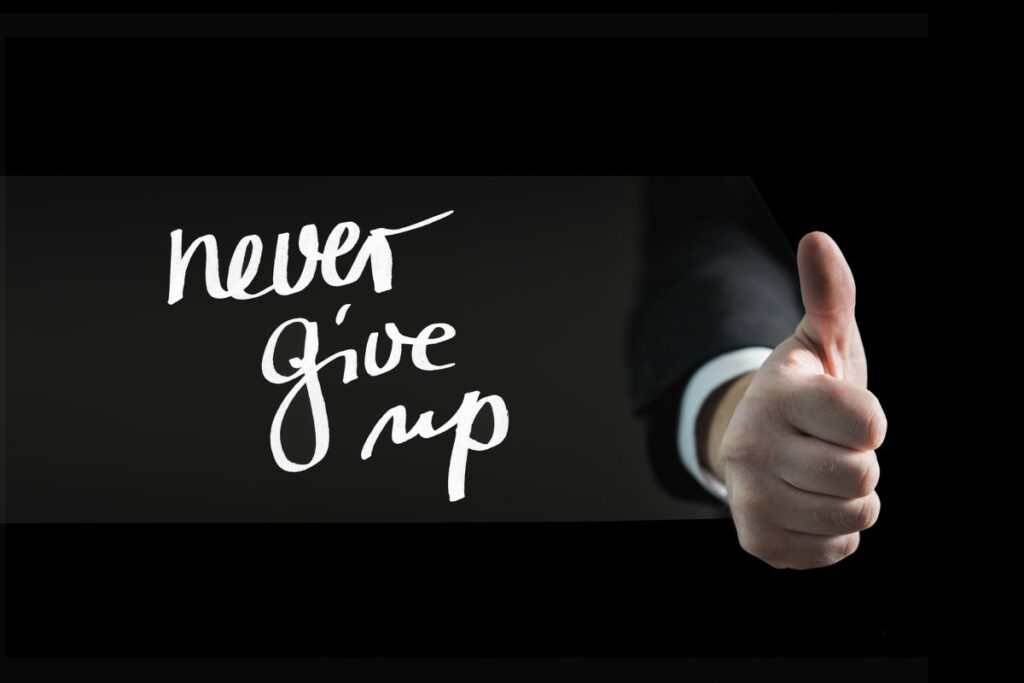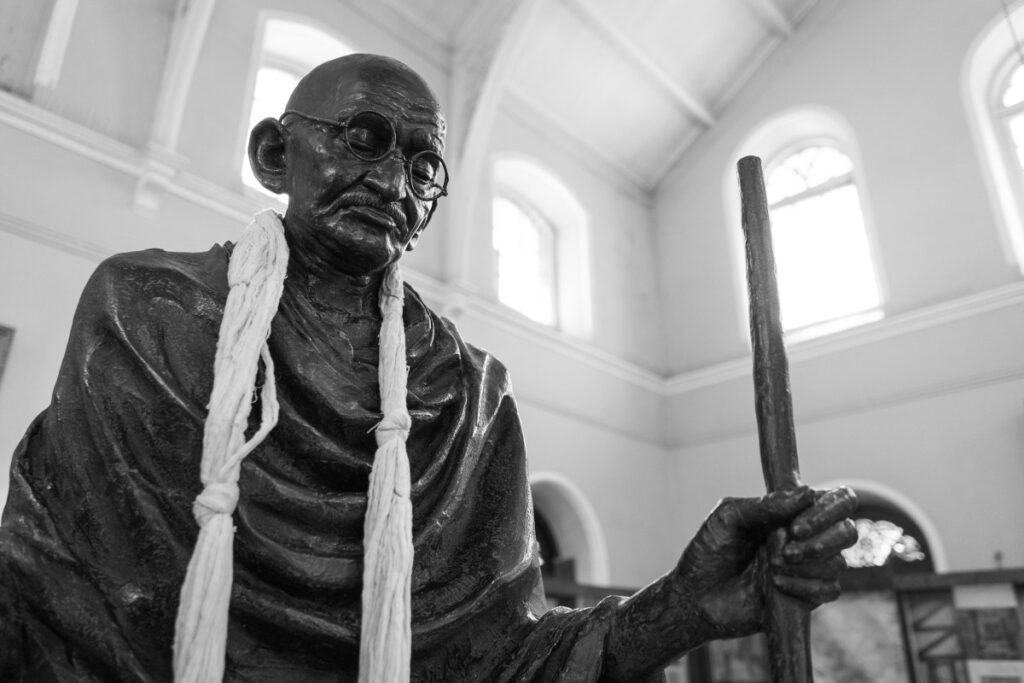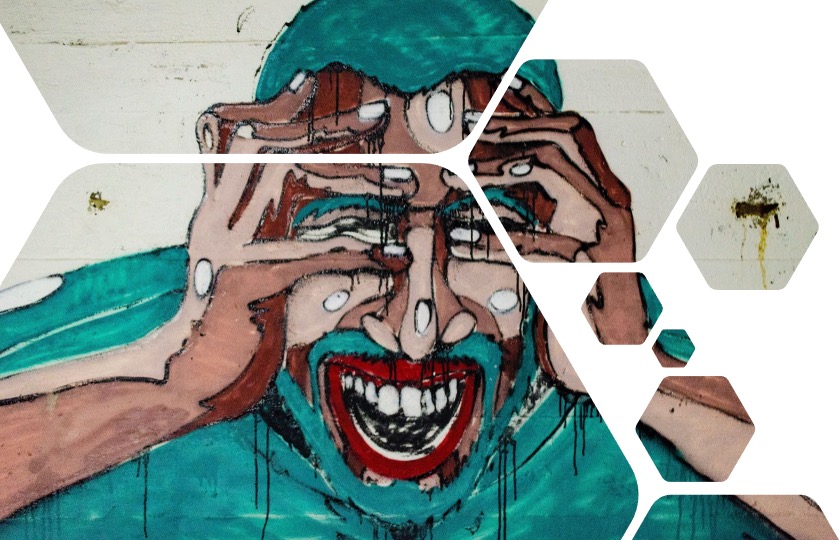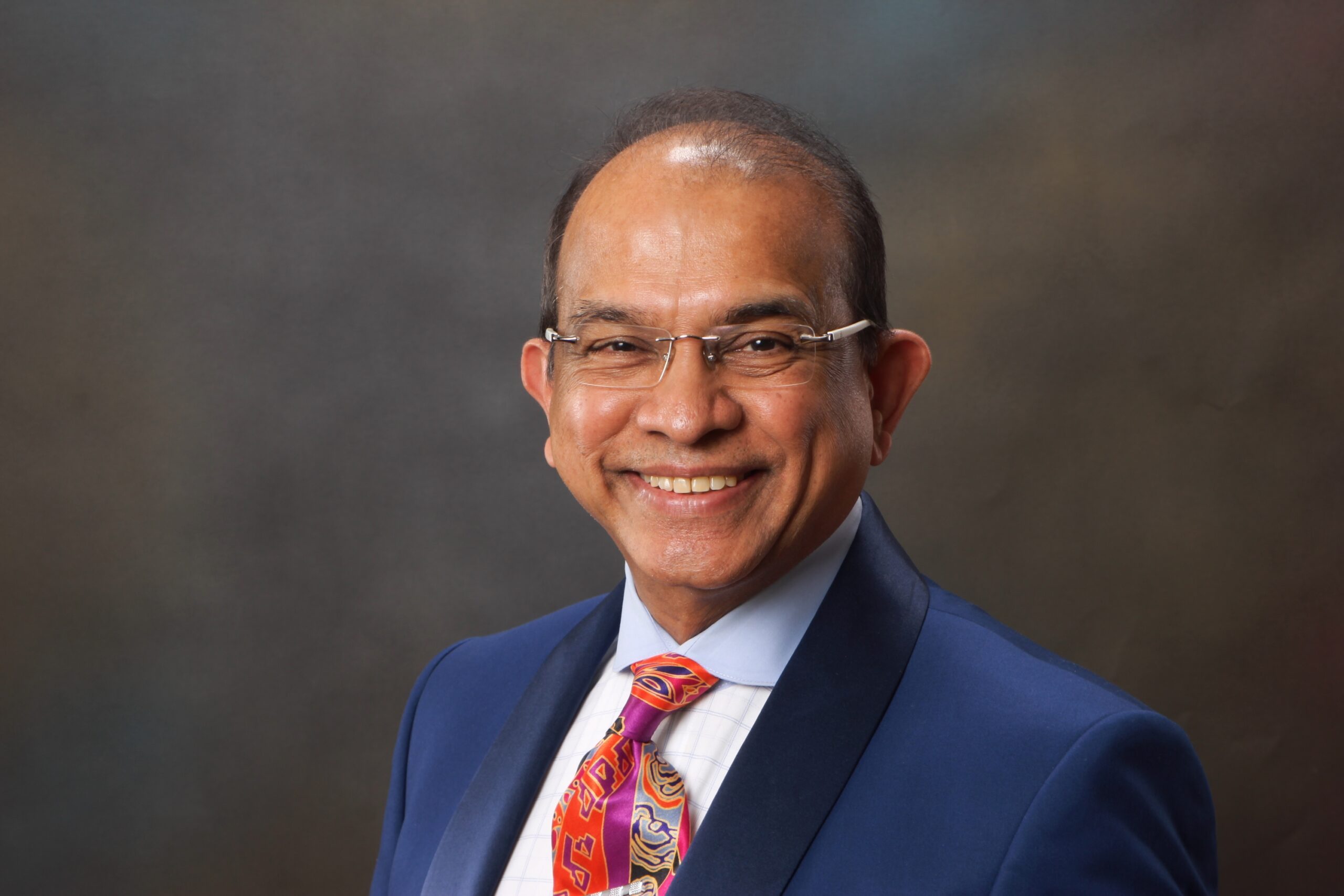“Courage (also called bravery or valor) is the choice and willingness to confront agony, pain, danger, uncertainty, or intimidation.”
— Wikipedia
Courage is the most important human quality.
Winston Churchill said, “Courage is rightly esteemed the first of human qualities because it is the quality that guarantees all others.” In a similar manner, Maya Angelou stated, “Courage is the most important of all the virtues because without courage, you cannot practice any other virtue consistently.”
It is important to keep in mind that courage does not wipe out or eliminate fear.
Therefore, those individuals or heroes who exhibit tremendous courage also experience fear like all of us. We should never give up when faced with life’s challenges. Instead, we should continue to work hard. It is important to use courage to push through these challenges, on our way to our success-destination.

We should never stop when faced with life’s challenges.
Courage is the primary ingredient to attain any significant success in life.
You have to possess, develop, and augment your own courage while pursuing success.
Mahatma Gandhi’s Courage
Let us look at an individual who exhibited tremendous courage in the face of injustice, inequality, and oppression. Yes, let us look at Mohandas Karamchand Gandhi or Mahatma Gandhi. Mahatma means “great soul.”

Statue of Mahatma Gandhi
Henry David Thoreau’s Influence on Mahatma Gandhi
A single individual, Mahatma Gandhi, stood up with courage to face the then most powerful empire in the world, the British Empire. He did so to attain India’s independence from British rule. He used a non-violent approach in doing so.
It is interesting to note that Gandhi was influenced by Henry David Thoreau, a nineteenth-century American writer. Thoreau published his essay “Civil Disobedience” in 1849. Thoreau was motivated by his opposition to slavery and the Mexican-American War during the years of 1846-1848.
Gandhi was imprisoned four times in South Africa and six times in India. While in jail, Gandhi read Thoreau’s essay. Gandhi embraced the concept of civil disobedience. He made it his way of non-violently refusing to cooperate with the British authorities in India. Instead of words like civil disobedience, he opted for the Sanskrit word satyagraha (devotion to truth).
It is of interest to note, that Martin Luther King, Jr. appears to have been influenced by both Thoreau and Mahatma Gandhi.
Salt March
One significant event in Gandhi’s life was the Salt March.
In 1882, the British Salt Act was enacted. It prohibited Indians from collecting or selling salt in India. This meant Indian citizens had to buy salt from British merchants. These merchants had a monopoly on the manufacture and sale of salt. Additionally, these transactions had a significant salt tax.
Gandhi was sixty-one when he undertook his historic Salt March from March 12 to April 5, 1930. Gandhi walked ten miles daily for twenty-four days covering 241 miles from his Sabarmati Ashram near Ahmedabad to Dandi, located on the coast of the Arabian Sea.
Beginning with eighty people, the march ended with a crowd of tens of thousands of people. Upon reaching the destination, Gandhi picked up a small lump of natural salt out of the mud. This action established civil disobedience to the British Salt Act. It was clearly an act of courage in the face of adversity that could have even threatened his existence. Nearly 80,000 people were arrested, including Gandhi. Shortly thereafter, about 2,500 marchers advanced on to the government salt works located at Dharsana depot.
India’s Independence
Webb Miller, an American journalist, wrote, “at a word of command, scores of native police rushed upon the advancing marchers and rained blows on their heads…. Not one of the marchers even raised an arm to fend off the blows. They went down like ten-pins.” This event made international headlines and was read about in the US Congress. The Salt March, and other courageous acts of Gandhi and his followers, culminated in Indian Independence from British rule on Friday, August 15, 1947.
Courage in Our Daily Lives
Gandhi, my friends, is clearly an outlier, outside the bell curve. Gandhi is among the greatest heroes of all time, whom generations will read about, historians applaud, and all of us admire with awe!
We, on the other hand, must look at courage from our own perspective in our daily lives. Courage my friends, is a must in our lives. Regardless of where we stand in the courage spectrum, we can improve through continued efforts and mental training. We can build, strengthen, and increase our courage incrementally, over time.
Role of Procrastination
Often in our day-to-day life, when we are challenged, we embrace procrastination. This partly is due to not possessing the required courage to move forward during moments of adversity, challenge, and an uphill journey.
Life’s Challenges
Challenges may exist in the areas of our relationships, finances, health and wellness, or beyond. In those challenging moments, we need the courage to deal with the issues at hand, effectively and efficiently, in a timely manner.
We need to develop enough individual courage to help us get to our goals, dreams, and aspirations. Only we can do it on our own life’s journey. This also means we have to face our fears!
That raises the question: What is fear? Let us briefly analyze fear.
Fear Is the First Cousin to Courage
In my opinion, fear is the first cousin to courage. They usually hang out together. They go everywhere together like inseparable twins. Most importantly, they live inside the mind of every single human being.

Fear and courage usually co-exist.
Role of Uncertainty
Uncertainty contributes to fear, and in life, uncertainty is a given. Therefore, fear will always be there. You cannot eliminate fear even though you may want to. Fear is closely associated with the survival mode and our reaction is influenced by our adrenaline response, which often translates into our “fight or flight” response. The adrenaline has a direct effect on our body, including rapid heart rate, palpitations, elevated blood pressure, anxiety, and sweating.
Life is uncertain, unknown, and unclear. Life brings clarity when we look through the rearview mirror of the past, but when we look forward through the windshield, all we see is a fog of uncertainty. We are uncertain whether we will live or die in the next moment. Whether we will make money or lose money. Whether our spouse/better-half will continue loving us or begin to dislike us.

You cannot eliminate fear even though you may want to.
Negative Thoughts Start a Downward Spiral
When such thoughts begin to take root in our mind’s garden, the atmosphere that surrounds us soon becomes tainted with fear, uneasiness, and discomfort. Life is no longer smiles, sunshine, and rainbows. Instead, life begins to look like a hurricane ready to hit anytime. Soon, fear becomes the word of the day. Now we can see how such a cycle of events can take shape within our mind and then affect our mood, health, and actions or inactions. Fear can dominate when we indulge in thinking about life’s future uncertainties.

Negative thoughts give rise to negative emotions that creates a downward spiral.
Courage-Fear-Interplay
Thus, fear and courage are interlinked, interconnected, and interactive. Let us look at the interactions between these two major human emotions.
Courage pushes you forward from where you stand, and since you are moving forward, I like to give it a positive (+) number. On the other hand, fear pulls you backwards from where you are, and hence, I like to give it a negative (-) number.
Net-Effective Number (NEN)
Now, I’ve come up with Net-Effective Number (NEN), which relates to the courage-fear-interplay. If your courage is a +8 and your fear is a -4, then the NEN= +4, meaning you will move forward courageously in the given situation. However, if your courage is +4, and fear is -8, then the NEN = -4, meaning you will move backward, or freeze in inactivity.
Hence, in my opinion, it is not the courage or the fear individually that matters; instead, it is the NEN that matters in any given situation. The NEN is the sole force that will move you forward courageously, freeze you in your tracks, or make you retreat with fear.
The Comfort Zone’s Role

The comfort zone is the zone of least resistance, least challenge, and often a status quo state.
Courage also means moving you out of your comfort zone and placing you in your growth zone. In order to experience growth, we have to step out of our comfort zone, and step into our uncomfortable zone. This movement from your comfort zone to your growth zone requires action! My friends, take action now, and you will be transformed forever and get one-step closer to your life’s greatest dream or destination. I know you can do it!


Latest posts by DrTJ (see all)
- Emotional Intelligence: The Secret to Building Strong Relationships and Achieving Success - April 17, 2023
- Procrastination – Definition, Perspective, and Overcoming It - February 15, 2021
- Breaking Point, Boiling Point, and Beyond - February 5, 2021

